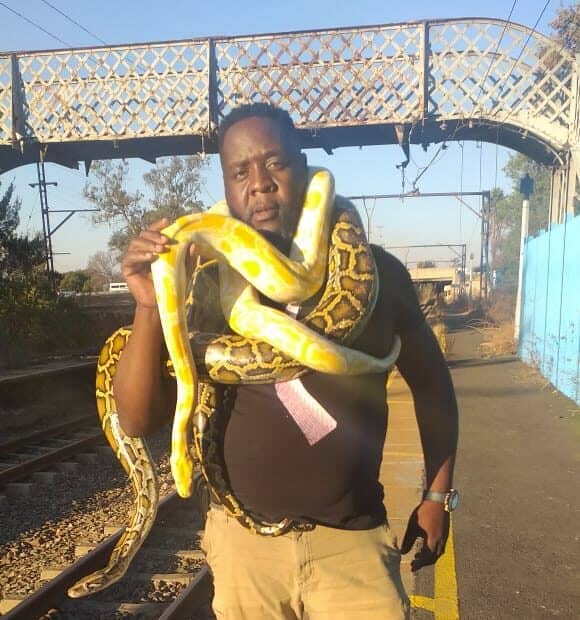Selecting the correct career is a crucial decision with far-reaching implications. It is a choice that will shape your future, underscoring the importance of making an informed decision.
Over the next few weeks, the African Reporter will engage with business people, professionals and other role players, focusing on a specific career every week.
By doing this, we aim to provide valuable guidance to our younger readers navigating their career choices.
This week we give a platform to the snake catcher career.
Springs Modder-East resident Christopher Mthombeni is a snake catcher who said his upbringing drew him to the career path.
“I grew up closer to nature as a Scout. Hiking and camping made me love nature. My advice to someone who aspires to become a snake catcher is to be prepared to learn daily and do not do it for money but have love, for what you do,” said Mthombeni.
What is a snake catcher?
A snake catcher cares for the environment and saves snakes and humans. They professionally handle and work with snakes. These professionals safely remove and relocate snakes from areas where people live, ensuring humans’ and snakes’ safety.
What do snake catchers do?
We catch and are responsible for assessing the snake as to whether it’s harmed or not. We also release it back into nature.
We also educate the public about snake conservation and dispel myths and fears about snakes. We use specialised equipment and techniques to minimise the risks of injuries to snakes and the catcher. We make sure we release healthy, uninjured snakes back into their natural habits as close to where they were captured as possible.
What are a snake catcher’s roles and responsibilities?
• To ensure the safety of snakes and humans;
• To collect data and assess the health of the environment;
• Provide data to nature conservations and student bodies.
Where can I study to become a snake catcher?
I studied nature conservation and pseudo-herpetology as a point of interest. One can do it through university, college and some snake institutes that provide training like the African Snakebite Institute.
What high school subjects do I need?
Mathematics and science.
What skills should I have to become a snake catcher?
Before the skills, you need a passion. This goes for all professions.
• The ability to multitask and think outside the box;
• Be physically fit because you might have to go through passages and underneath stuff;
• Basic first aid skills specific to snakebites;
• The ability to identify snakes;
• The ability to administrate the correct emergency protocols;
• You must familiarise yourself with the safety equipment required, such as snake hooks, tongs and protective clothing, and understand their proper use.
What do you do with the snakes caught?
We give them a second chance in life by relocating them to a safe environment. The law suggests 10km from where it was found. The area must have food, water and shelter for the snakes.
Why do you catch snakes?
We only catch snakes that pose a danger to humans or livestock. We save both. We get harmless and dangerous snakes commonly in Ekurhuleni. The dangerous ones are the cytotoxic and neurotoxic venom rinkhals snakes.
The harmless ones are your brown house snake, the Aurora house snake and non-venomous snakes. We also get mildly venomous skaapstakers, night adders and herald snakes, the most common to find.
Which legal documents do I need?
One needs a catch-and-release permit issued by the nature conservation department and a transport permit if one will transport the snake outside its nature of origin.
One will also have to do animal behaviour theory and practical work.
Where do snake catchers work?
One can work for the local municipality in:
• zoos;
• snake parks;
• nature reserves; and
• privately as a snake catcher.
At Caxton, we employ humans to generate daily fresh news, not AI intervention. Happy reading!
Stay in the know. Download the Caxton Local News Network App here.

